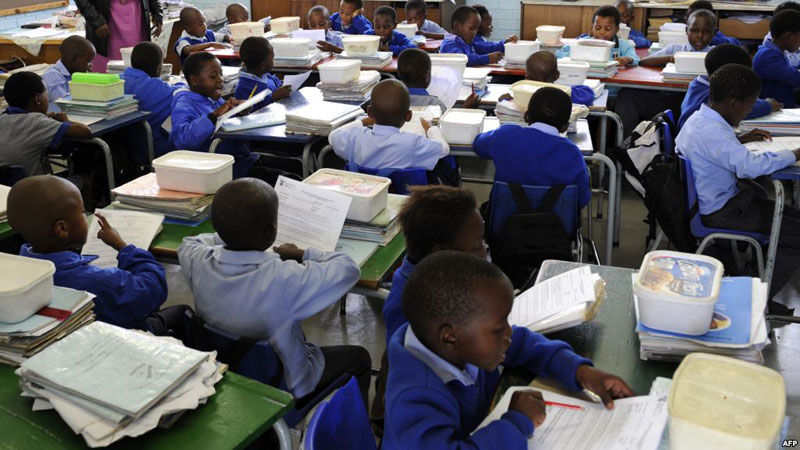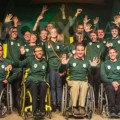Pretoria – Basic Education Minister Angie Motshekga says her department is hard at work to improve support services and the way the curriculum is delivered in public, special and ordinary schools.
Basic Education for All
The Minister hosted a Ministerial Roundtable on Disability in Pretoria on Monday as part of the Disability Rights Awareness Month 2015.
Minister Motshekga said areas of concern, which are receiving attention, include the lack of sufficient professional staff like nurses, therapists, psychologists and social workers. She said these problem areas were being addressed through the development of Human Resource Provisioning Norms and District Norms.
She said her department recognises that it must strengthen district-based support services.
“The Department of Basic Education is committed to ensuring that all learners with disabilities are able to access a special or full service school, which offers the programme of support that they require, preferable in their neighbourhood.
“We would like to see all schools becoming more responsive to learner needs by influencing the change of attitudes of their school community that may still be predisposed to prejudice against people with disabilities,” said Minister Motshekga.
She said the lack of specialised competencies among educators teaching at special and full service schools is being addressed through multi-year plans for teacher training in areas like Braille, South African Sign Language, autism, augmentative and alternative communication, and effective utilisation of assistive technology, among other initiatives.
Minister Motshekga reaffirmed government’s commitment to providing access to quality education and support to all children with disabilities.
She said no child should be left behind. “… One child excluded is one child too many.”
Minister Motshekga said there is a persistent challenge of out-of-school children with disabilities who are unable to exercise their right to basic education, thus lacking access to any form of support services offered within a school environment.
“There are also children with disabilities in schools who have not been properly assessed to determine and plan for their support needs.
“In a bid to address the educational rights of children who are at risk of compounded marginalisation, we have developed a new White Paper on the Rights of Persons with Disabilities,” said Minister Motshekga.
She said the new policy instrument will be presented to Cabinet this month. The white paper broadens the scope of understanding marginalisation to include persons with psychosocial, intellectual and/or neurological disabilities, especially those who live within rural and/or impoverished communities and families; persons that are homeless or displaced or refugees, as they are less likely to access information on their rights, as well as supported decision-making services, and children with severe to profound intellectual disability who are out-of-school.
Widening access to education
She called on everyone to join hands and focus on what needs to be done to ensure that every child with a disability of compulsory school-going age is enrolled in a registered education programme or school, and has full access to the learning process through access to reasonable accommodation and support.
“We all know that in every settlement in South Africa – rural, peri-urban and urban – there are children with disabilities who remain excluded from education,” said the Minister.
She also said the State must ensure that children with disabilities have access to a public ordinary school in the neighbourhood in which they live, and must ensure that they receive the necessary reasonable accommodation to address their individual needs.
“It is for this reason that we have passed the Policy on Screening, Identification, Assessment and Support (SIAS) to ensure that no child will be refused admission to a school and that children who are exempted from school attendance are captured on a list so as to ascertain that they also have access to other government services,” said Minister Motshekga.
There are currently 453 special schools in the country. Eighteen are under construction.
Minister Motshekga said there are only two of the 82 education districts that do not have special schools.
Emeritus Professor Roy McConkey of the University of Ulster in Northern Ireland said South Africa was one of the leading countries in the provision of inclusive education in the world, and definitely in Africa.
He commended government for its efforts to improve the quality education for persons living with disabilities.
He also said it is time to move away from excluding children with disabilities from society by placing them in residential special schools, and advised that government should look into the possibility of integrating them in full service schools and provide conducive facilities.
Thenjiwe Ndebele, 25, spoke as the Chairperson of Self-Advocates from Down Syndrome South Africa.
She pleaded that all children with disabilities be given access to education so that they can earn a bit of independence.
“I may have a disability but I have many abilities. We matter. Education is important to us,” said Ndebele, who aspires to be a businesswoman. – SAnews.gov.za








